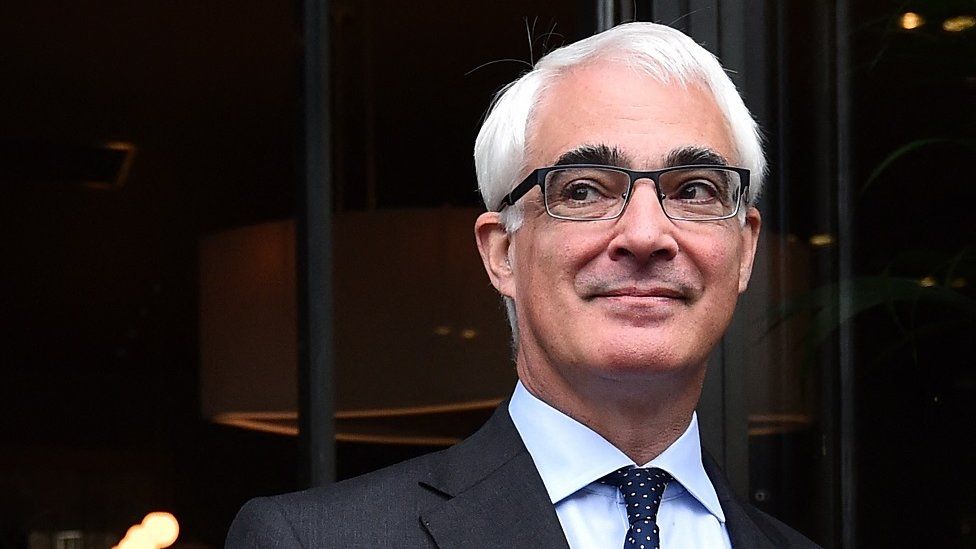Former Chancellor Alistair Darling dies aged 70

Alistair Darling, the Labour chancellor who steered the UK through the 2008 financial crisis, has died aged 70, a family spokesperson has said.
Following Labour’s landslide 1997 election win, Lord Darling served in cabinet for 13 years under Tony Blair and Gordon Brown.
He was best known as the steady pair of hands who shepherded the UK economy as half its banking system collapsed.
The ex-Edinburgh MP died after a short spell in hospital, his family said.
A statement issued on behalf of his family called Lord Darling a “much-loved husband of Margaret and beloved father of Calum and Anna”.
Mr Brown, who after becoming prime minister brought Lord Darling in as chancellor, said he was “deeply saddened” to hear of his death.
On social media, Mr Brown said: “I, like many relied on his wisdom, calmness in a crisis and his humour.
“He will be missed by all who knew him.”
Labour leader Sir Keir Starmer said: “Alistair lived a life devoted to public service.
“He will be remembered as the chancellor whose calm expertise and honesty helped to guide Britain through the tumult of the global financial crisis.
“I consider myself incredibly fortunate to have benefited from Alistair’s counsel and friendship.
Chancellor Jeremy Hunt described his predecessor in 11 Downing Street as “one of the great chancellors”.
Mr Hunt said: “He’ll be remembered for doing the right thing for the country at a time of extraordinary turmoil. My deepest sympathies to his family.”
Eradicate poverty
Despite becoming known as the mild-mannered New Labour centrist, Mr Darling was associated with far-left policies as a student activist in Aberdeen – reportedly distributing “Marxist” leaflets at railway stations.
A lawyer by profession, he first entered politics in 1982 after being elected to the former Lothian Regional Council.
Five years later he became an MP, and was seen as a key ally of Tony Blair and Gordon Brown as they sought to modernise their party and transform it into New Labour.
Entering government 10 years later Mr Darling served as chief secretary to the Treasury, putting in place wide-ranging reforms to financial regulation, after the collapses of Barings and BCCI.
He then replaced Harriet Harman as social security secretary – a role now known as work and pensions secretary – delivering Labour’s welfare reforms and taking responsibility for spending a third of the government’s budget.
While in this role Mr Darling once said he hoped to be remembered as “the minister who began to eradicate poverty”.
Despite a long career in government little could have prepared Lord Darling for his near three-year stint as chancellor – the job for which he was handpicked by Mr Brown in June 2007.
He was appointed amid seemingly calm economic times. But it was a Number 11 tenure marked by financial chaos, unseen in Britain for decades.
His decision to nationalise Northern Rock at first, and then effectively the bulk of British banking amid runs on banks by the public and financial markets set the tone for the global response to the 2008 financial crash.
Looking back on the financial crisis, Lord Darling said the “scariest” moment was when the Royal Bank of Scotland called to tell him they would run out of money that afternoon.
Related Topics
- Labour Party
Published at Thu, 30 Nov 2023 13:41:27 +0000
